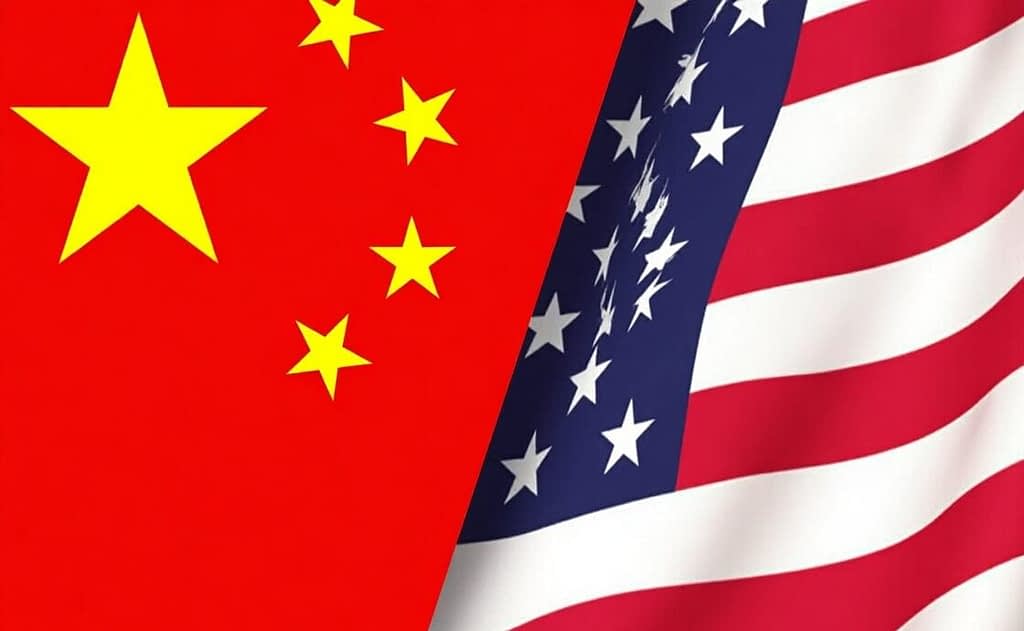After weeks of pushing for high tariffs on imports from around the world, Donald Trump made a surprising pivot in his trade policy. While significantly increasing tariffs on Chinese goods, he announced a 90-day delay for other trading partners. This strategic decision came just 13 hours after the tariffs were implemented and following a significant drop in global markets. Trump’s move isolates China as the main target of his trade offensive and dramatically changes the global trade dynamics.
Which Tariffs Did Trump Pause?
Trump announced a 90-day suspension of so-called “reciprocal” tariffs on imports from nearly 60 countries and the European Union. These tariffs were individually tailored to each trading partner and corresponded to the size of their trade surplus with the US. Imports from these countries will now be subject only to the flat 10% tariff that Trump imposed on all foreign goods from April 5.
China was excluded from this delay. Instead, Trump announced that he would increase tariffs on Chinese goods from 104% to 125%. This decision came after Beijing announced plans to retaliate with an 84% tariff on American goods.
Why Did Trump Pause Some Tariffs?
The implementation of reciprocal tariffs caused market chaos and sparked recession fears. Trump faced massive pressure from business leaders and investors to change course.
“I thought people were getting a little out of line,” Trump told reporters. “They were getting too nervous, a little bit afraid.”
Stocks surged following Trump’s announcement to pause some tariffs. The S&P 500 jumped 9.5%, representing the largest single-day gain since 2008.
Key Facts About Trump’s Tariff Strategy:
- Trump suspended reciprocal tariffs for nearly 60 countries and the EU, but increased tariffs on Chinese goods to a record 125%.
- This tactical shift isolates China as the main target of US trade offensive.
- Stock markets responded with sharp growth – S&P 500 recorded its largest single-day increase since 2008.
- China is planning economic stimulus and domestic demand support in response.
- Tensions have spread beyond the economic sphere, including military relations.
What Happens When Trump’s Pause Ends?
Trump’s announcement of the delay suggests that its purpose is to give US trading partners an opportunity to strike deals to avoid tariffs. Trump and other US officials want countries to take measures that include reducing their own tariffs and other trade barriers.
It’s possible that when the 90-day delay ends in early July, countries that haven’t negotiated a deal with the US will again face the original tariffs.
Situation for Canada and Mexico
America’s two largest trading partners were not subject to reciprocal tariffs. Instead, goods from Canada and Mexico face 25% tariffs that Trump has linked to illegal drugs and migration. However, imports covered by the North American free trade agreement are exempt.
Why Is China the Main Target?
Trump’s argument that China’s trade practices are unfair predates the country’s announcement that it would retaliate against US reciprocal tariffs. Trump first increased tariffs on imports from the world’s second-largest economy during his first presidential term.
In his second term, he signed executive orders suggesting that tariffs are a way to hold China accountable for its alleged failure to curb the export of fentanyl and its precursor chemicals, which have contributed to the US opioid crisis.
Impact on China and Its Response
The selective relief announced by Trump drove US stocks to their best rally since 2008, but simultaneously weakened the Chinese yuan to its lowest level since 2007. The increase in US tariffs is expected to burden the Chinese economy – Goldman Sachs economists lowered China’s growth forecast for 2025 from 4.5% to 4%.
“We can probably reach a deal with our allies,” said Treasury Secretary Scott Bessent. “And then we can approach China as a group.”
Beijing responded forcefully to the reciprocal tariffs and showed no clear signs of trying to contact Trump, who stated he was “waiting” for China to call. Trade tensions have spilled beyond economics. The Pentagon criticized Beijing for its influence on key infrastructure, while China warned citizens against traveling or studying in the US.
“Trust has gone,” said Da Wei, director of the Center for International Security and Strategy at Tsinghua University in Beijing. “In the balance between economic development and economic security, you will always emphasize security.”
China’s Domestic Response
Beijing has signaled increased urgency to strengthen its economy, which relied on exports for a third of its growth last year. Top Chinese officials are preparing to discuss additional economic stimulus.
China has also urged companies to refrain from diversifying supply chains as it tries to prevent manufacturing exodus. Premier Li Qiang emphasized the need to expand domestic demand. Fujian province plans to help exporters sell their goods to Chinese customers to absorb the impact of tariffs.
Another warning sign is the continuing Chinese consumer deflation and factory deflation, which has persisted for 30 months. Prices could weaken further if exporters redirect some goods to the domestic market.
Future Outlook
Trump said he doesn’t think he would have to raise the rate higher to force China to negotiate. Economists have also suggested that the effect of tariff increases is becoming increasingly marginal.
“China’s leadership doesn’t seem to be in any rush to make a deal,” wrote Julian Evans-Pritchard from Capital Economics. “They appear to have concluded that they can afford to weather the impact of US tariffs and that Trump will be in a weakened position further down the line as the economic and political fallout from the tariffs mounts.”




